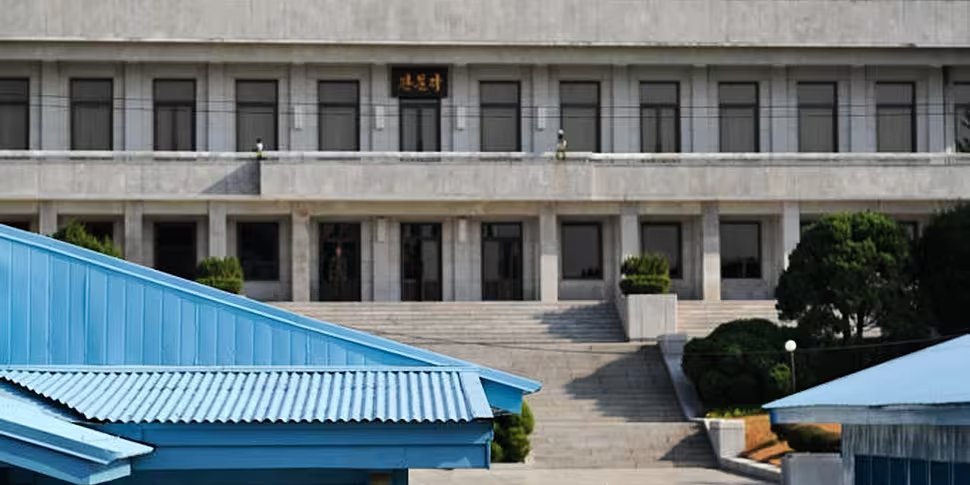A North Korean missile launch is being investigated as a possible test of a submarine-launched ballistic missile, according to South Korean officials.
The secretive state fired at least one projectile towards its eastern sea in what appeared to be a display of improved military capabilities.
If North Korea has developed a missile which can be launched from a submarine, this means the weapons could travel further than the current range.
The US is due to restart nuclear negotiations with Pyongyang this week after talks fell apart in February.
It is understood North Korea has been willing to offer partial denuclearisation in return for the US lifting crippling sanctions and providing security guarantees.
But on Wednesday morning, Japanese Chief Cabinet Secretary Yoshihide Suga said the North appeared to have fired a ballistic missile that had split in two, with one part landing inside Japan's exclusive economic zone (EEZ) off the northwestern coast.
There were no reports of damage to boats or aircraft in the area.
It is the first time since November 2017 - when the North's nuclear and missile launches were particularly provocative - that a weapon has been fired into the EEZ.
South Korea's military reported the launch of one missile, which it said flew 280 miles.
Responding to the launches, Japanese Prime Minister Shinzo Abe said they violated UN resolutions against North Korea.
"We will continue to cooperate with the U.S. and the international community and do the utmost to maintain and protect the safety of the people as we stay on alert," he said.
The National Security Council in Seoul also expressed "strong concern" over the test.
The launches are North Korea's ninth round of weapons tests since late July.
Kim Dong-yung, an analyst from Seoul's Institute for Far Eastern Studies and a former military official who participated in inter-Korean military talks, said the test is an attempt to gain leverage before negotiations with the US resume.
The two nations will first make contact on Friday before holding working-level talks on Saturday.
North Korea's first vice minister of foreign affairs, Choe Son Hui, said in a statement: "It is my expectation that the working-level negotiations would accelerate the positive development of the DPRK-U.S. relations."
However the state has said it will never unilaterally surrender its nuclear weapons and missiles and wants sanctions against it to be lifted before any progress can be made in negotiations.
Choe Son Hui previously warned the talks could be final if they stall once again.
But some positive noises have been made after North Korea praised President Trump for suggesting the US may pursue an unspecified "new method" in the negotiations.
Main image: A South Korean soldier looks in the direction of North Korea at the demarcation line between North and South Korea in the demilitarized zone in Panmunjon, officially called Joint Security Area | Image: Revierfoto/DPA/PA Images









